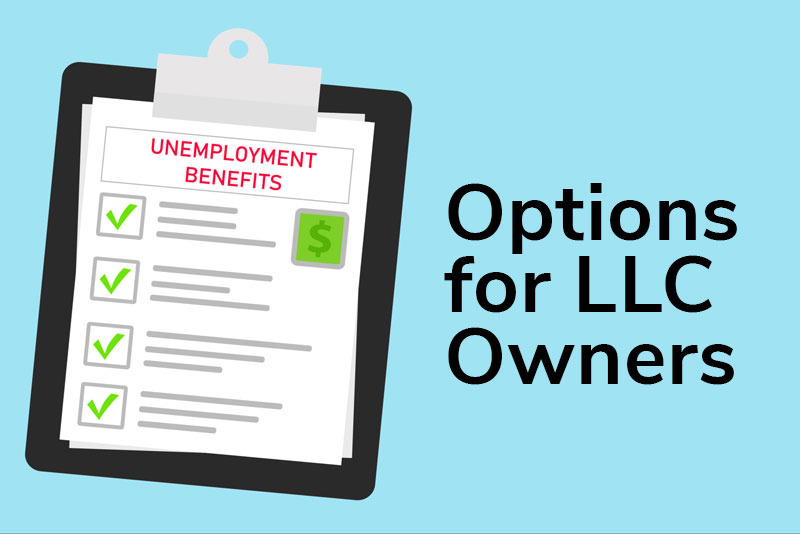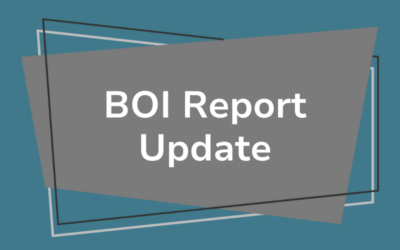Can an LLC owner file for unemployment? The quick answer is yes, but not in every situation.
There are advantages to owning a Limited Liability Company (LLC), with tax flexibility, serving as one of the major benefits. How you elect to structure your LLC for tax purposes is what makes the difference in being able to file for unemployment.
What is the Unemployment Insurance?
Payroll taxes are incurred at the state and federal level. Employers must register for the appropriate tax accounts to hire employees, to process payroll, and to file returns.
Unemployment Insurance Tax (UI) is a federal program that provides temporary payments to unemployed workers, and this employment status is not based on their actions. The federal UI tax rate is 6% and must be paid by the employer. However, employers pay both a federal and a state unemployment tax (SUI).
The individual state’s laws determine SUI eligibility and benefits. Employer taxes associated with SUI rates vary by state. They can also be scaled based on the number of unemployment claims related to a business.
LLC Options for Tax Treatment
By default, an LLC is considered a “disregarded entity” for tax purposes, which means income tax is treated like sole proprietorships for single-owner LLCs and partnerships for multi-member LLCs. The business’s income and losses are passed through to its members’ tax returns and are subject to members’ individual tax rates. However, an LLC has other tax treatment options:
- C Corporation Tax Treatment – Members can choose the LLC to be taxed as a C Corporation, with profits taxed at its corporate rate.
- S Corporation Tax Treatment – Alternatively, members of the LLC can choose S Corporation election, which allows for the LLC to have pass-through taxation but with the corporate benefit of a reduced self-employment tax burden because members only pay Social Security and Medicare taxes on their income taken as salaries; members’ dividend income is not subject to self-employment taxes.
Under What Circumstances Can an LLC Owner Receive Unemployment Benefits?
Unemployment benefits are typically available to individuals who have lost their jobs through no fault of their own and meet specific eligibility criteria established by their state’s unemployment insurance program. However, LLC owners may have different circumstances depending on how they are classified for tax and employment purposes.
- Active Member of an LLC – If you are an active member of an LLC and deeply involved in the business’s day-to-day operations, you may not be eligible for traditional unemployment benefits. Self-employed individuals typically do not pay into the state unemployment insurance system. Therefore, they are not eligible to receive unemployment benefits based on wages earned from the LLC.
- Passive Member of an LLC – If you are a passive member of an LLC and have no involvement in the business’s day-to-day operations, your unemployment benefits eligibility may differ. In some states, passive members are considered similar to shareholders in a corporation, and their eligibility for unemployment benefits may depend on factors such as their ownership percentage and the specific state’s regulations. It’s essential to check your state’s specific rules and consult with legal or financial professionals for guidance.
- Loss of Employment Status – If you were actively involved in the LLC but lost your job due to circumstances beyond your control, such as a significant reduction in business activities or a layoff, you may inquire about your eligibility for unemployment benefits. The determination will depend on your state’s laws and how your employment status within the LLC is classified.
- Salary or W-2 Income – Some LLC owners (classified as employees) may receive a salary or W-2 income from their LLC in addition to any profits or distributions. In such cases, they may be eligible for unemployment benefits based on their W-2 income if they lose their job within the LLC, assuming they meet the other eligibility criteria set by the state.
LLC Owners and W-2 Income
The classification of LLC owners as company employees depends on several factors, including how the LLC is structured and how the owners are involved in the business’s day-to-day operations.
Here are some common circumstances under which LLC owners may be considered employees of the company:
- Single-Member LLCs – In most cases, the owner of a single-member LLC is not considered an employee. Instead, they are typically treated as self-employed individuals for tax and employment purposes. They may not receive a salary or wages in the traditional sense, and they generally do not pay themselves as employees.
- Multi-Member LLCs – In multi-member LLCs, the situation can vary based on the LLC’s operating agreement and the roles and responsibilities of the members. Again, it depends on whether the member has an active or passive participation role.
- Manager-Managed LLCs – In some cases, an LLC may be structured as a manager-managed LLC, where one or more members take on the role of managers responsible for running the business. Members who serve as managers and are actively involved in managing the company’s affairs may be considered employees and receive compensation as such.
- Specific Roles and Agreements – LLC owners can have various roles and responsibilities within the company, which can be defined in the LLC’s operating agreement. Suppose an LLC owner takes on specific roles, such as CEO, CFO, or another managerial position, and there is an agreement to compensate them as employees. In that case, they may be treated as employees for tax and employment purposes.
Business Structure Considerations
The business structure you decide to file under significantly impacts whether the owner is considered an employee of the company:
- Filing taxes as a C Corporation – In a C Corporation, the business is a separate legal entity from its owners (shareholders). Owners of C Corporations can be employees of the company and receive W-2s.
- Filing taxes as an S Corporation – The S Corporation is another standard business structure, and it also has implications for how owners are classified for employment purposes. Shareholders actively involved in the business’s daily operations can be considered employees and receive a salary in addition to share disbursements.
It’s important to note that the classification of LLC owners as employees can have significant tax and legal implications, including payroll taxes, workers’ compensation, and eligibility for certain benefits. LLC owners should consult with legal and tax professionals knowledgeable about the specific circumstances and applicable regulations governing their LLC and their state’s employment laws.





